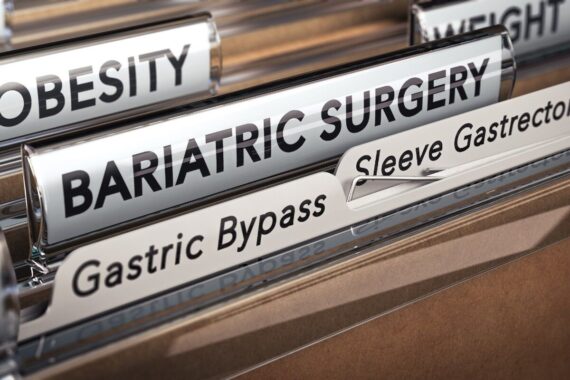NICE draft guidance recommends endoscopic sleeve gastroplasty

Endoscopic sleeve gastroplasty could help weight loss in people with a BMI over 30 who have not lost weight with lifestyle modification alone, and who are not suitable or do not wish to undergo bariatric surgery, NICE has said.
The 90-minute procedure to reduce the size of the stomach has been recommended by draft NICE guidelines as a ‘safe and effective’ option to help people lose weight.
The committee reviewed evidence for the ‘non-invasive’ procedure and said it was safe in the short and long-term when combined with lifestyle changes.
Patients undergoing the procedure – in which sections of the stomach wall are folded and stitched together to reduce its size to create a tube-like sleeve – can go home the same day although may be kept in overnight, the recommendations noted.
By reducing the volume of the stomach by up to 80%, the procedure, which is done under general anaesthetic, limits the amount of food which can be eaten at one time.
One clinical trial reviewed by NICE found 59 of 77 participants lost 25% or more of their original weight a year after having an endoscopic sleeve gastroplasty.
But it should only be done in specialist centres by a clinician with specific training and experience and on patients selected by a multidisciplinary team experienced in managing obesity, NICE stressed.
The Health Survey for England 2021 estimates that around a quarter of adults in England are obese and a further 37.9% are overweight.
A lower BMI threshold of 27.5kg/m2 or above should be used for people with a South Asian, Chinese, other Asian, Middle Eastern, Black African or African-Caribbean family background when considering the procedure, the committee said.
By comparison, bariatric surgery can be considered as a treatment option in some people who have a BMI of 40 or more or a BMI between 35 and 39.9 who have other significant diseases such as type 2 diabetes.
Records should be kept of anyone having an endoscopic sleeve gastroplasty as part of the National Bariatric Surgery Registry, NICE added.
Professor Jonathan Benger, chief medical officer at NICE, said: ‘We know people who live with obesity or who are overweight are more likely to be at risk of other conditions such as type 2 diabetes, hypertension or cardiovascular disease.
‘A procedure which helps to reduce a person’s weight is one way to lower the risk of developing these conditions, and to improve overall health and wellbeing.’
He added: ‘One of the benefits is that this procedure can be carried out as a day case, and not involve an overnight stay, reducing the time people spend in hospital compared with other surgical options. Recovery is also quicker.
‘Surgical treatment options are in high demand and not everyone wants, or is fit enough, to undergo an operation like bariatric surgery. A non-invasive procedure like endoscopic sleeve gastroplasty could be a welcomed new option for some people.’
A consultation on the draft recommendations has begun at nice.org.uk until Thursday 26 October 2023.
Visit Pulse Reference for details on 140 symptoms, including easily searchable symptoms and categories, offering you a free platform to check symptoms and receive potential diagnoses during consultations.









